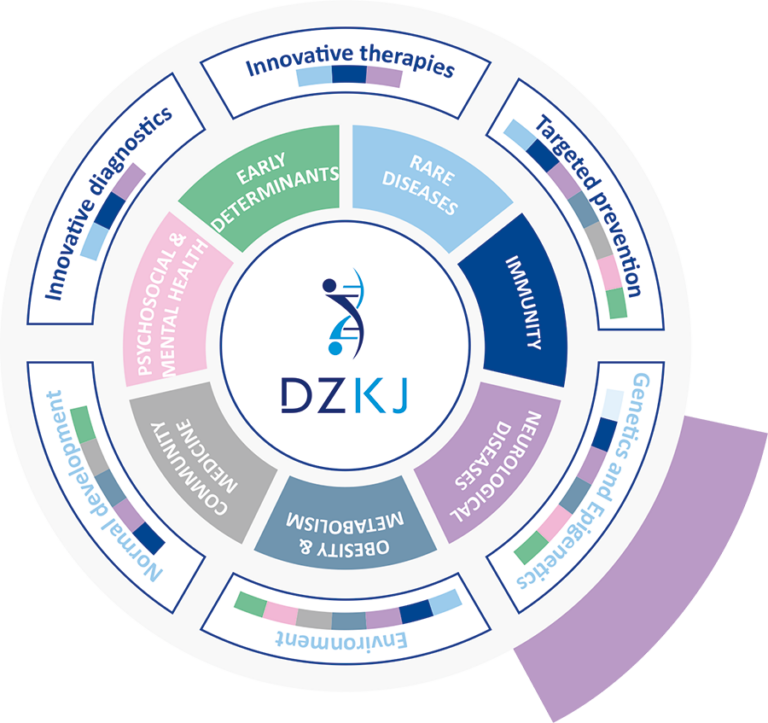CNS Development and Neurological Diseases
Healthy children and adolescents through science – for a better life
CNS Development and Neurological Diseases
Healthy children and adolescents through science – for a better life
Background
Neurological diseases in children and adolescents represent a growing group of mostly rare genetic disorders affecting the central nervous system (CNS). Clinically, these conditions are often marked by early-onset developmental delays, progressive movement abnormalities, visual and hearing impairments, epilepsy, and cognitive decline, including dementia. The clinical spectrum and underlying molecular and cellular mechanisms remain largely unknown, and few effective treatments currently exist.
Key aspects of research
The CNS Development and Neurological Diseases research program leverages substantial expertise across partner sites to identify biomarkers and develop innovative therapies, including gene, cell, and drug therapies, with a particular focus on drug repurposing. Integrating basic science with clinical research is central to advancing our understanding of disease mechanisms and accelerating the creation and application of new diagnostic and therapeutic methods into current clinical practice. A unique DZKJ platform will be established to pioneer therapies specifically for pediatric neurological diseases, initially concentrating on neurometabolic and neurodegenerative disorders. Patients, parents, and the public are engaged from the outset in research planning and decision-making, ensuring their active participation in early clinical trial development once therapeutic targets are identified.

Objectives
In the program’s start-up phase, the primary objectives are to identify new diagnostic markers and develop therapeutic strategies for early-onset neurometabolic and neurodegenerative diseases. A DZKJ drug screening program will be launched and expanded within the DZKJ platform for pediatric-specific therapies, fostering close collaboration between basic science and clinical research to advance novel treatments.
Contact Persons

Univ.-Prof. Dr. med.
Lars Schlotawa
University Medical Center Göttingen; Fraunhofer Institute for Translational Medicine and Pharmacology ITMP

